Graham Reid | | 25 min read
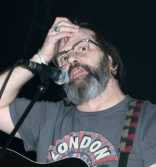
By 2004, Steve Earle could reflect on a career and life which had been one of the most extraordinary in American music. He crashed into country music with his 1986 classic rockin' country album Guitar Town then spun through a drug-fuelled downward spiral which earned him a prison term in the early 90s.
He emerged a stronger man, vocal advocate of free speech persuasively arguing against the death penalty, and a more mature musician who had some real stories to tell.
He has written a play (Karla, about the first female Death Row inmate since the Civil War), poetry and acted.
These days -- after a series of albums which pushed musical boundaries and took his loyal following on a wayward but rewarding journey -- he can play straight-ahead rock (as befits a man who grew up loving Hendrix and the Beatles), but he is also a singer-songwriter in the same league as Bob Dylan and his mentor Townes Van Zandt, and an accomplished and much respected bluegrass player.
But his first post September 11 album Jerusalem two years ago contained bruising criticisms of contemporary America. Most attention settled on his song John Walker's Blues which he sang from the perspective of John Walker Lindh, the young American captured fighting with the Taliban. It was banned by many radio stations and Earle was accused of being unpatriotic.
While his fans know him for his edgy and emotionally affecting music it has been his outspoken political opinions which gained him headlines, a namecheck on the conservative New York Post's list of traitors ("the only review I've ever framed in my career was when I got a one-star review for Jerusalem in the New York Post") and earned him the wrath of the country music establishment.
Earle has ridden through the controversy with dignity and clarity, and in the recently released DVD bio-documentary Just an American Boy he repeats his position: "It is never, ever unpatriotic or un-American to question anything in a democracy, no matter what anybody else says what an insult it is. I just wasn't raised as an artist to believe that you censor yourself because of being afraid of offending someone."
We talk to 49-year-old Earle in his manager's office in Nashville.
Are you busy at the moment? 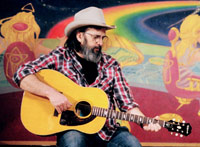
We'll, we thought we'd finished the Jerusalem tour two months ago but then the possibility of going to Australia and New Zealand came up -- and I love the Byron Bay Festival and we built the last three tours around it. I've only been to New Zealand to play once and that was in '91 so we're cranking it back up. I've been doing some solo shows, but mainly I've been writing and working on a book, and working on songs for our next record. After New Zealand the band is coming back straight after the show but I'm going to stay in New Zealand for a few days and fish. I'm into the fly-fishing in a pretty big way and I can't go to New Zealand and not go fishing. It's supposed to be the best in the world. I've talked to several people and we're starting touring in the South Island and coming up, but I think I'm going to go back down [to fish]. A couple of easy-to-get-to places, and a couple I'm going to have to helicopter in to.
Well, you have to turn these long trips into a bit of a holiday.
Yeah, and it's a good time of year so it should be good.
You say when you are writing again - and Jerusalem came out a while ago now. I guess there's that cycle you get into?
Yeah, there is and I'm trying to get this new record out before the election actually. (Laughs) I'm a little behind, I had a little bout of kidney stones which stopped me in my tracks for about three weeks. But I've taken care of that and it's going to be the perfect time because what will happen is a lot of this record will get written in Australia and New Zealand. I actually wrote Jerusalem the song in Melbourne when I was out solo in the [American] spring before last. The sound checks start becoming rehearsals and writing sessions for the next record. That's the way it's always been - because my band is scattered all over the world. My bass player lives in Paris now but he's been with me since '88 so I can't fire him for moving to Paris. Everyone comes back to Nashville though and we'll start on the new record in the last week in April.
Do you find that when you have a distance from America you can see it differently - you mention Jerusalem written in Melbourne.
Absolutely, because Americans are unique in that we're arguably the most insular country in the world and the vast majority of Americans never leave the country.
Most don't even hold passports.
Yeah, even our president didn't have a passport before he was president. That's frightening. Europeans are different because in Europe you can't hardly go out your back door without being in another country. And even Australians are not as isolated as Americans. They go to other cultures and other cultures come to them, it's that proximity to Asia and it all becomes relative. You [in New Zealand] are dealing with a lot of distance but you don't think of it like that. Most people who've never been out there don't realise that when you are in Perth you are closer to Singapore than you are Sydney. It's a whole different perspective - but Americans are content to stay in their own hometown for their whole lives and that's okay. But I see things differently from most. I'm very proud of being American and am very embarrassed by the administration that is currently in power.
I was in Australia when the first Gulf War broke out and in Norway when this one broke out - and you get different news [about it] and that's important.
I want to talk to you about the doco that's just come out, it's released here at the same time as you arrive which is fortuitous. But it struck me that - you just said you are proud to be American - one of the first images that comes up is the flag and one of the last is the flag. Whether that it is deliberate or not, it seems to me that it is necessary to reclaim the flag from the kind of right-wing conservatives who veil themselves in it like a moral shield.
Absolutely. I saw exactly the same thing in the Vietnam War and I got kicked out of school for sewing an American flag upside down on my jacket. But that is the international distress signal, you run the colours upside down, and I felt like we were in trouble. I've taken up painting a little because it's something I am so bad at that there's no pressure on me. And right now I'm working on a self-portrait which is me as a skeleton with an American flag with the peace symbol in it, which you saw a lot of when I was growing up during the Vietnam war. It's funny, I see a lot of symbols that were important to me when I was 14 years old are becoming increasingly important to me today.
I think we can stop this war - and music can help stop this war. I know music helped stop the Vietnam War, I was there and I saw that.
It's just acting my art and I'm being optimistic for the first time that we can actually beat this guy [Bush]. Then I can go back to writing chick songs again. (Laughs)
And there's always a place in the world for those.
Oh yeah, I hope so.
What is making you optimistic at the moment, is it the success of [Democratic nominee] John Kerry?
It's that the presence of [Democrat contenders] Howard Dean and Wesley Clark started the healthiest preliminary process we've had in the Democratic Party in a long time, and basically there is discernible difference between Democrats and Republicans again. (Laughs) Barely, but it is there and you can see it. I don't think Kerry or whoever the Democratic nominee was would be talking about Iraq and some of the things we are talking about if that process hadn't been as wide open as it was. Or if we'd had this completely out of nowhere guy running away with the primary process in the beginning.
That said, everyone rallied around one candidate really quickly and Democrats that may have voted Republican, and independent voters who may have voted Republican or didn't vote at all, are now taking this election a lot more seriously. We are dealing with a country that is completely divided when it comes to what party they align themselves with. I'm not a Democrat or a Republican - although I can't see myself ever voting for a Republican candidate - but I think we really have a chance to beat [Bush] because people have figured out they got lied to, and people don't like to be made fools of, and I think they are starting to react to it.
After the invasion of Afghanistan and then Iraq a lot of Democrats ran for cover because they didn't want to be seen to be unpatriotic ...
Yeah, the deal on this is like that on the death penalty. You can't find a politician - I think there's maybe less than 10 if I'm not mistaken - a national representative in the Senate and the House, that will publicly oppose the death penalty. But I don't think that has anything to do with what their real moral position is, it has to do with handlers telling them they can't oppose the death penalty and get elected. On the Iraq thing I think this administration did a really good job portraying anyone as unpatriotic. I'm on the New York Post traitors list, a newspaper that very irresponsibly publishes a list calling people traitors because they don't agree with them. That's not what treason is, it's like selling secrets of your country or doing something to undermine the security of your own country by subterfuge. And John Walker Lindh is not guilty of treason. Most American's think he was tried for treason and convicted of treason - but he was never even charged with treason. They couldn't charge him with it because he wasn't guilty of it. It's simply not illegal in this country - yet - to immigrate to another country and join an armed force there. He had no intention of ever coming back here so it's not treason.
Still, it's no bad thing for you to have the New York Post against you, is it? You'd be more worried if they were on your side. (Laughs) The only review I've ever framed in my career was when I got a one-star review for Jerusalem in the New York Post. I framed that one.
In the doco, Nora Guthrie suggests many musicians are expressing their political views privately but will hold back from any overt position. Did you notice friends and peers have put a distance between themselves and you in the past few years?
I'm sure there are people who have but I've been so busy I don't really see so many people anymore. (Laughs) Most the people I know are supportive, my friends in Nashville ... Well, I don't really have any friends in mainstream country music and I'm sure they are a little taken aback. But (Laughs) I don't like Kid Rock and I'm not trying to impress Charlie Daniels and Hank Williams Jnr or any of those people. I do have some friends I think are really politically aware and are scared, but I wouldn't name any names. But they are terrified and the effect [that speaking out] would have on their careers. They are also genuinely worried about hurting people's feelings, like family members' feelings of people who died on September 11. And the government has capitalised on that.
It's the same mentality that surrounds the whole death penalty debate, if you are against the death penalty you get accused of being disrespectful of the victims' family. My opinion is the death penalty itself is disrespectful of victims' families because they are dragged through the process for years and years and years.
If you sentence offenders to life then immediately that closure could begin. But with the death penalty there are all these appeals - which are necessary because you want to make sure you are not executing the wrong person, and believe me even with all the appeals we still execute innocent people and that's been proven. So the same mentality applies here. On September 11 everyone became a victim's family member and we all took it really personally and it was really shocking.
We are very insular like I said and had never had an attack of that magnitude on our own soil. But people are starting to come out of the fog and are asking questions again and it feels much more democratic around here than it did when I was writing Jerusalem.
So you feel, if not breezily optimistic, at least that there is cause for hope?
Yeah, I don't think they are going to let Bush get away with this. The economy does matter too and the truth is that jobs have gone away by the millions since he's been in office - and that 600 body bags have come back home. It's not regular army either, some of those people who have been killed are Reservists and National Guardsmen, people that probably wouldn't have been in the Reserves or the National Guard if they didn't need the extra money. They didn't join to go off and fight a war. They joined to put on soldier suits and go out on training weekends to get a little extra money. The vast majority of people who have died have been members of units like that.
Back to the death penalty issue for minute. I am mindful I am talking to you on the day that John Allen Muhammad [one of the two "Washington snipers"] has been sentenced to death. He is a very different character than a kid who holds up a filling station and accidentally shoots somebody. A sniper who wilfully goes out and kills people at random is rather less sympathetic. The philosophical argument you advance would be harder to get across in a case like this. How do you talk about that?
There's no doubt about it, but I'm not trying to save anybody on Death Row, I'm trying to keep me from going to Hell. My opposition to the death penalty has to do with the fact that if this is a democracy and if the government kills people then I am killing people - and I object to the damage that does to my spirit. My belief is that it diminishes us. It is not necessary, doesn't protect us, is more expensive than incarcerating them for the rest of their lives, and the idea that there are any benefits from it at all is based on some pretty dodgy reasoning if you ask me.
Most of the governments in the world have figured out it's not a good idea to give the government the power of life or death. Period. That's the difference between us and most other countries. In Europe it's real easy to figure out why. One of the first things the European Union did was do away with the death penalty in the few places it still existed. The reason they did that was because people in Western Europe had seen a government out of control and killing large numbers of its own citizens arbitrarily. And they never forgot that. We didn't have that experience, we had an ocean between us and all of that.
Steve, I know my time is short so if you don't mind I'd like to ask some random questions, things that have always interested me. For a long time you've used Tony Fitzpatrick's art on your album covers, what appeals to you about it? Is it the Outsider style?
Well, Tony doesn't see himself as an Outsider artist because he's a really fine draftsman and is a trained artist. But it does draw from folk art styles, although he's a master printer and is one of the few people that does five-colour prints from etchings from copperplates, which most of these covers are. El Corazon is an exception, that's a painting. But I've known Tony for a long time and he makes art the way I make art. He taught me it was useful to work outside of your own craft. I write poetry because of Tony's influence because he's a poet as well. I got into acting because Tony does it and pushed me to do that, and I've even started painting a little bit. He's got a core craft that he's best at but does a lot of other things, and he's my best friend and I will wrap my art in his as long as I keep doing it.
You mentioned in passing you got into acting, there is a snippet in the doco, but does stepping outside music into another character allow you to come to your lyrics and think, 'Well, I have played other roles so I can put myself in the head of John Walker'.
It's the same thing. When I first thought about doing it [acting], it was one of the things I'd told myself I could never do. But you do it. When you write a song in the first person you are assuming that character and talk they way they would, so there is a parallel.
Two quick ones: A plug for your sister Stacey's new album Never Gonna Let You Go?
She's out there plugging away at it. She works even harder than I do. It's a really good record and she gets out on tours with us sometimes and I'm proud of her because she started relatively late because she was raising kids. She's done this all herself and she's amazing, if you get a chance to see her you should.
Last question then, I leave here for the States for two months the day before you play in Auckland, so this is for me: when you go back to Nashville are you going to be doing any shows in the region?
We'll be in the studio recording but I am taking the bluegrass band out on the road this summer and there will be a few shows here and there. Then we'll start going out with this band again in September. It all goes on.
*****
Steve Earle: Just an American Boy January 2004
Earle's excellent Jerusalem album of late 2002 not only confirmed he was one of the most consistently powerful and electrifying agit-folk singer-songwriters since Dylan in the 60s but that he was unafraid to exercise his democratic right to freedom of speech in a climate which branded him as unpatriotic. His ballad for John Walker, the American captured fighting with the Taleban, put him in the crossfire but fearlessly he has continued to speak out about the true nature of democracy and the need for dissent.
This live double disc brings late-comers up to date as he moves from Stones-style rock, back to bluegrass and politicised folk (his moving Over Yonder and old-school Woody Guthrie Leftism) and nods to his earliest days in versions of Copperhead Road and Guitar Town.
He peppers the set with humorous anecdotes, his opposition to the death penalty and the war in Iraq, and copes well with those audience members who, God knows why, whoop and bellow for no apparent reason. An essential voice here heard as it should be.
*****
Steve Earle: The Revolution Starts . . . Now 
October 2004
Earle won few friends here for concerts which were thrash-rock and his voice little more than a monochrome growl. You can imagine some of the songs on this urgent collection would sound much the same live, which isn't to say that these tracks are all broadcast on the same narrow frequency: Earle adds necessary studio polish (multi-tracked vocals, a string section stabbing through The Gringo's Tale), and he maintains that affection for Rubber Soul-period Beatles alongside country rock. He even allows himself a little humour on the (pretty bad) reggae riffing about Condoleezza Rice on Condi, Condi.<
The war in Iraq is rightly still his concern and Earle addresses the issue from the bottom up.
Home to Houston is about a guy who drove big wheel rigs but is now doing the same in Basra because there was nothing for him at home; Rich Man's War looks at young men on both sides of the conflict who are fighting and dying for men far from the front; Warrior is a spoken-word piece which reaches towards the mythic and has a Doors-like resonance. It should be accompanied by Coppolla's choppers coming over the horizon and napalm explosions. He turns in a grunge version of Tex-Mex music on F the CC (an expletive-inclusive swipe at US talkback radio), Emmylou Harris joins him for the backbeat ballad Comin' Around, and the highlight is I Thought You Should Know in which the much-married Earle explores the territory between lust and love but knows where heartbreak lies.
Earle has said he can't wait for this war to be over so he can get back to singing about girls and stuff, and there are a few places here where you might feel the same. Especially when he brings that hard-won maturity about such things to a song like I Thought You Should Know. But while the war drags on, his Everyman voice demands to be heard and is rarely less than commanding and utterly passionate.
*****
This interview with Steve Earle appeared in the New Zealand Herald in October 2002
"The problem," says Steve Earle, "is the President is, umm, is ... well, possibly retarded. But I don't hold that against him." 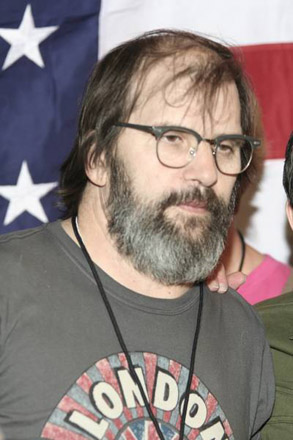
Earle doesn't laugh or even pause for effect. That wasn't a punchline, just a statement of fact as he sees it. He carries on.
"You know, George Bush doesn't scare me, Dick Cheney scares the living **** outta me and I think he's genuinely dangerous. He's running the country more than anyone realises and he isn't having to be accountable because, who gives a **** about the Vice-President of the United States?
"So we're in a dangerous period and I happen to be more afraid of an assault on our civil liberties than I am about being attacked by terrorists."
When Earle speaks like this - and he is an eloquent, plain-speaking advocate for the repeal of the death penalty and other liberal causes - you'd be forgiven for thinking he was a spokesman for some leftist organisation
The self-described "borderline Marxist" speaks repeatedly of the dangers of America - the country of his birth and which he loves with a passion - rolling back the civil liberties and freedoms it has fought for since its founding in the wake of September 11 last year.
The Patriot Act signed into law a year ago, which allows for widespread and random surveillance of citizens through phone taps and monitoring of computers, worries Earle, although he says "that can be undone and I think it will eventually".
"The idea of our Constitution is it supposedly allows us, as we make mistakes, a way of correcting them. But basically we just defeated that process ourselves. What's even scarier than the Patriot Act is that in this climate [Attorney-General] John Ashcroft is a right-wing fundamentalist Christian and he furthered his agenda, taking advantage of September 11 and dishonouring the memory of 3000 people and their families."
And so Earle goes: railing against the erosions of democracy in a country that would pretend to be its finest example, discussing the fundamental precepts of Marxism, the success of a moratorium on the death penalty in Maryland, and how Bush became President through "a coup" in Florida.
Surprisingly, this articulate advocate of free speech isn't running for public office or heading any organisation. He is 47, a road-hardened musician who started in the country-rock corner 16 years ago with the acclaimed Guitar Town album which articulated the dreams and lives of ordinary people. Copperhead Road which followed was even more successful, but Earle spun out, became a junkie, served time, came out clean.
In the past seven years he has produced a remarkable, diverse body of work which reaches effortlessly from acoustic ballad to rock'n'roll and, for The Mountain album, authentic bluegrass married with songs of dissent.
His latest album, Jerusalem, crosses musical boundaries from banjo ballads to Stones-style riffing on Amerika v 6.0, country rock, an affecting love ballad with Emmylou Harris, and into Tex-Mex Farfisa-organ pop. Many of the songs are infused with his political spirit - sometimes apocalyptic, sometimes optimistic - and in the States one in particular has drawn special attention.
For John Walker Blues, Earle adopts the voice of John Walker Lindh, the Marin County teenager named after John Lennon who became disillusioned with American life and found his future in the words of Mohammad and the Koran. He joined the Taleban in Pakistan after studying Islam in Yemen, trained with al Qaeda soldiers and was captured in Afghanistan. In July the 21-year-old pleaded guilty to charges of assisting the Taleban and now faces 20 year in prison.
That Earle chose to not only sing about Walker but did so from a non-judgmental position meant it would inevitably be controversial in America. Earle was branded a traitor in some circles, and this former favourite son of the Nashville country music establishment found radio jocks calling for a boycott of his album. It was also notable that his work was seen as an act of dissent in the prevailing conservative political climate in the United States.
"[The reaction] was what I expected from the people it came from," says Earle, "which were a very, very right-wing radio talkshow host and the New York Post, which is toilet paper. And the Wall Street Journal, which is a little classier toilet paper. 
"The truth is, in none of the mainstream press I've talked to no one has questioned my right to write what I want to when it gets right down to it. No intelligent person has challenged my motives for writing that.
"My motives were that I have a 20-year-old son and I think it could have happened to him or your 20-year-old son, that's what it was about. It was about disillusionment with the culture - and also scapegoating, which is very dangerous and ugly, like racism."
Earle's political position doesn't come without humour, although the joke often has point.
"I still believe that my country wasn't created by a revolution of people but a revolution of rich farmers who didn't want to pay their ****ing taxes, and we're still basically a bunch of rich farmers who don't want to pay our taxes. But we did create something that's bigger than we are in our Constitution. It's a document that may be bigger and more effective than its framers intended. It's proven to be pretty durable and I think it'll survive this."
He notes that television channels in America very much want a war with Iraq and have a vested interest in one - "Never forget that CNN is what it is because of the Gulf War, and that's not lost on anyone in the television business" - and the most irresponsible thing about the present Administration is "when they blur the lines and make Iraq and 9/11 the same thing. The only way you can get to that is racism, and that bothers me."
Earle admits that while he doesn't sell millions of albums, his kids are in private schools, he drives a new car and makes an embarrassing amount of money.
"But how much money can you spend? I don't feel guilty about it, although I probably did at one time. I don't have any problem with commerce as long as it's not at the expense of almost everyone else," he laughs. "When I call myself a borderline Marxist it's because I believe everything Karl Marx said about economics is true. Basically when you boil down those big fat-arsed books, all they say is capitalism is fundamentally oppressive simply because it depends on a surplus of labour to thrive.
"In other words, you have to have a workforce out of work to keep in place the workforce that is working in case they get out of hand and start wielding too much power, or attempt to.
"There's nothing wrong with being entrepreneurial, but I don't believe you deserve to starve to death simply because you are not entrepreneurial, and I don't believe it's okay for people to go hungry in the richest countries in the world, or anyone to go without decent healthcare - which happens in my country.
"Thirty-five per cent of the American people don't have any health insurance. Those are all human issues and I feel guilty about that. I could take my truck and give it away but I don't think it's going to help anything. I travel all around the world, and if I let myself I could surrender myself to pretty expensive tastes. But I've figured out you go down the right-hand side of the menu and the stuff that costs the most is the good stuff.
"But I believe everyone has the right to have enough to eat, a roof over their head and decent healthcare. And a job. Give people something to ****in' do! In the so-called Western world that we are so proud of, I think that's all possible, the resources exist."
And so a conversation with a musician goes by without music being mentioned and, unlike most such conversations, the artist barely mentions the new album which he is, at least in theory, supposed to be talking up.
But Earle is a man with a bigger agenda and his music is simply his chosen vehicle. The interview process allows him the opportunity to discuss more pressing matters than a bunch of songs on yet another album out in the marketplace. So the talk is political even when it is ostensibly about art.
"Yeah, but I think art is inherently political even when you are not writing about politics. There's always a political component in what I do. The songs on The Mountain, my bluegrass record, are pretty left-wing, but people were more concerned they were bluegrass songs and were shocked by that.
"Well, this time the rules are different. This is the only record I could have made in this political climate. I'm a pretty political person but not an overly political songwriter, but I don't think Woody Guthrie was either.
"He was a songwriter who lived in politically charged times and I am living in them too. Whether I like it or not."
*****
Steve Earle: Jerusalem 
September 2002
It's increasingly clear that Earle is one of the most consistently interesting and provocative American songwriters of the past two decades. He has a grumpy integrity that is rare, and a powerful humanism that allows him to inhabit characters he creates. He also speaks with compassion for the downtrodden while skewering their oppressors, whether they be landlords, local sheriffs or the whole industrial-military complex.
Musically, Earle's palette is increasingly wide. His last album Sidetracks saw him covering the Chamber Brothers' soul-rock classic Time Has Come Today (with Sheryl Crow), Nirvana's Breed, offering up his own bluegrass and tossing in the reggae standard Johnny Too Bad.
Transcendental Blues of two years back invited comparisons with the Beatles' Revolver as filtered through Texas country rock, and Earle has always expressed great admiration for the Beatles' ability to just get into a studio and do it.
That's what he's been doing, too, and songs - almost uniformly excellent - pour out of this self-described "borderline Marxist", all in an idiom that suits their sentiment whether it be grunge, pop, rock, country, folk or soul.
No surprises then to hear his new album open with a gritty loop tape hip-hop style, the ghost of the Stones' Street Fighting Man/Jumping Jack Flash starting up Amerika v 6.0, or later him in a chillingly beautiful duet with Emmylou Harris on the gorgeous love song I Remember.
Or that for the story of the unemployed Hispanic ending up in jail on What's a Simple Man to Do? he pays homage to the chugging Tex-Mex organ sound of the late Doug Sahm. Go Amanda is Little Feat reconfigured through Earle's country rock smarts.
Stateside post-September 11 most attention has settled on John Walker Blues, his probing, internal monologue/reflection of America and Islam through the eyes and voice of John Walker Lindh, the kid from California who joined the Taleban. It is a terrific song - only the most moronic would consider it unpatriotic - but it has its equals elsewhere.
While there's an apocalyptic feel to the opener Ashes to Ashes and the somewhat paranoid Conspiracy Theory, (JFK again Steve? In 2002?) the gems are in the lovely, understated acoustic country of The Kind, the broody banjo-driven prison ballad The Truth, and that duet with Harris.
The reflective title track at the end offers optimism and resolution despite "death machines rumbling across the land where Jesus stood". The answer is in having faith that "one fine day the children of Abraham will lay down their swords forever in Jerusalem". Anyone who has read William Blake won't take that location quite so literally, although it would be nice to, huh?
Earle here proves again he is in the tradition of the great American dissenters, has the intelligence, voice and conviction to carry it off, and because of the musical diversity and arc of ideas here this is one of the few post-9/11 albums that is both provocative, and has a passionate heart controlled by a guiding intellect.
Oh, and it rocks like a mother in places.

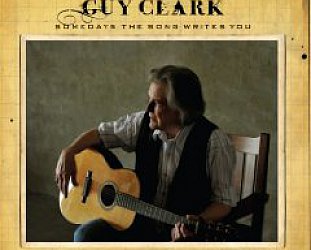

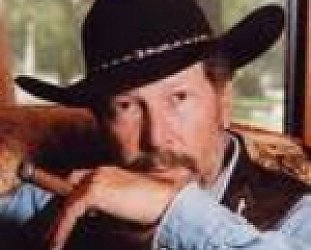
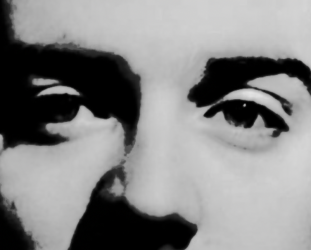
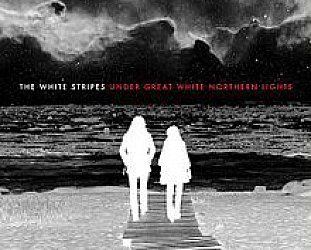
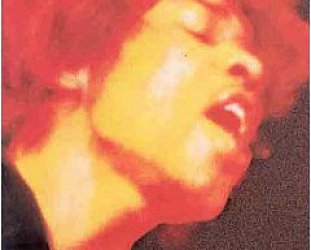
post a comment